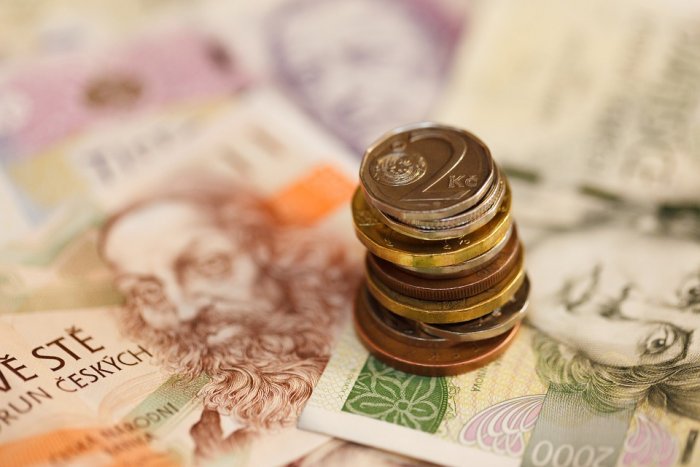Retailers Optimistic for Black Friday, Despite Mixed Messages

Graphic by panda_o / Shutterstock.com
Until recently, Black Friday and the Christmas season were the most anticipated for the retail sector, as these few weeks generated most of their annual turnover. But this year seems more unpredictable than usual, with contradictory statistics and forecasts.
Will shipments arrive on time for Christmas? Will customers have money left for shopping? Will the microchip shortage impact the tech gadget market? Will tax refunds encourage families to spend more? These are only some of the swirling questions, meaning it is almost impossible to make any accurate predictions for the pre-Christmas shopping spree. Or rather, what once used to be a shopping spree. This unpredictability derives from several prognoses made before November.
Prognosis No. 1
Back in October, Norbert Madar, a senior analyst at GKI Digital, estimated that customers would need to prepare for higher prices and narrower assortments in many popular product categories but that customers will spend more money overall than last year.
According to Madar, the pandemic disrupted the global logistic networks; therefore, fewer products are reaching Europe in a longer time frame. As a result of the worldwide chip shortage, manufacturers have focused on the more expensive consumer and office electronics, as these carry higher profit margins.
Thus, customers will encounter a broader offer of high-end products and less low-budget products, which will be perceived as a significant rise in prices. Meanwhile, the forint is continuously depreciating, which is adding to the higher prices.
All this means that customers who in previous years were enjoying discounts of 50-70% during Black Friday should probably expect no more than 20-30% lower prices for smartphones and laptops this year. In addition, customers on a low budget may face low or no supplies of products in their price range.
Given all of this, retailers would probably extend the Black Friday promotions throughout the whole month of November to avoid panic shopping, Madar told daily Népszava (Voice of the People). For retailers, at least, the good news is that customers will likely spend 15% more than last year, at HUF 60,000 per capita. The pension premium and the tax refund for families, expected in February next year, will probably make customers more willing to spend.
Prognosis No. 2
Life has returned to the shopping malls, and clothing and fast-fashion retailers are happy with business figures, Katalin Neubauer, secretary-general of the Hungarian National Commerce Association (MNKSZ), told business daily Világgazdaság (Global Economy) recently. The bad news is the labor shortage caused by the new wave of the pandemic. Fluctuation is high, with little time to train the new employees.
Beginning with the second quarter, each month showed growing figures, especially in the electronics and food sector. Other retailers were less optimistic, but their problems lay not in shoppers’ purchasing power. They fear that with the new wave of the pandemic, access in shops will be restricted again, which will be a significant blow in the most important period, Neubauer said.
There is more mixed good and bad news. On the good side, the government has announced supplementary incomes, like pension premiums, salary raises, and tax refunds, which all encourage spending. On the downside, rising inflation is curbing family budgets, so retailers will likely not have a clear picture of sales only at the end of the year.
Wearing masks in shops will probably be compulsory again, but retailers hoping that the government will not enforce other restrictions, Neubauer added.
Prognosis No. 3
Black Friday and other “shopping fests” have declined in popularity, news portal 24.hu says, citing market research by marketing specialist Rita Jagodics. According to her data, only 13% of Hungarians plan to purchase their Christmas presents on Black Friday, the reason being that many do not believe in promotions anymore, after several disappointments in previous years.
The two leading players in online retail, eMAG and Extreme Digital, announced that they will hold one single Black Friday promotion this year, on the eMAG platform, on November 19. The two companies merged in 2019 but continued operating under separate brands and held individual Black Friday events.
For the first time, Black Friday will be held jointly this year, the official communication being that the synergies have come to the point where it is reasonable to unify the promotion and to offer customers more low-priced products than ever before.
Extreme Digital and eMAG CEO Balázs Várkonyi told the Budapest Business Journal that price reductions of various levels would be applied to 500,000 products on Black Friday. These products are already in the warehouses, and eMAG guarantees that products ordered on Black Friday will be delivered within a maximum of 14 days. Chief commercial officer Catalin Dit has no doubts that there will be growth, even compared to a strong last year.
“Currently, we offer around 3.5 million products through the eMAG platform. We estimate that the online market will grow further this year, and eMAG at an even higher rate, 20-25% compared to last year,” Dit told the BBJ.
Conclusions
Retailers show few signs of worry. Electronics retailer Media Markt has expanded warehouse capacities by 40% in preparations for the Christmas shopping period. CEO Gábor Szilágyi told news portal index.hu that the retailer offers promotions only for products in stock and only for those where they can guarantee delivery on time.
Surprisingly, not only traditional retailers have prepared Black Friday promotions this November, but also, for the first time, auction site vatera.hu. Sellers will be able to offer not only new but also second-hand products on November 26, picked by vatera.hu as its Black Friday date (and also the official date in the United States, as it is the Friday after Thanksgiving).
This article was first published in the Budapest Business Journal print issue of November 19, 2021.
SUPPORT THE BUDAPEST BUSINESS JOURNAL
Producing journalism that is worthy of the name is a costly business. For 27 years, the publishers, editors and reporters of the Budapest Business Journal have striven to bring you business news that works, information that you can trust, that is factual, accurate and presented without fear or favor.
Newspaper organizations across the globe have struggled to find a business model that allows them to continue to excel, without compromising their ability to perform. Most recently, some have experimented with the idea of involving their most important stakeholders, their readers.
We would like to offer that same opportunity to our readers. We would like to invite you to help us deliver the quality business journalism you require. Hit our Support the BBJ button and you can choose the how much and how often you send us your contributions.









